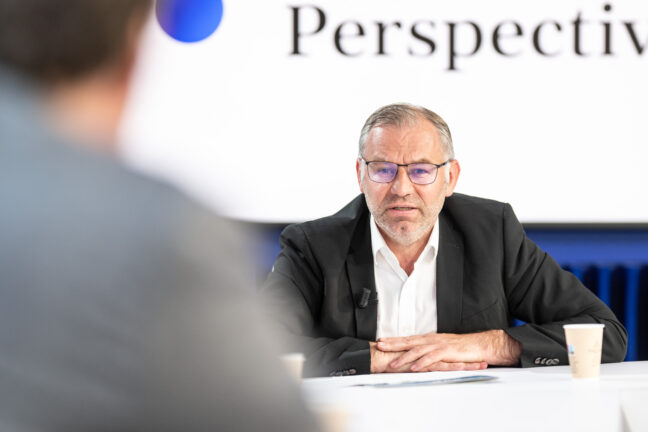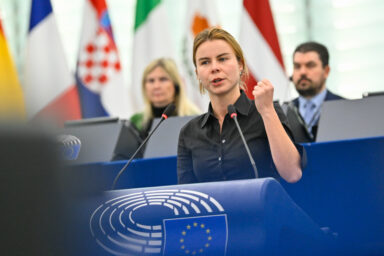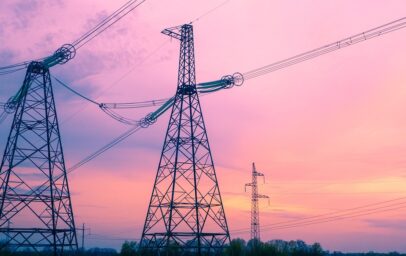The vexed question of how to share responsibilities and benefits within the EU Common Agricultural Policy (CAP) pits the influential MEP Norbert Lins (EPP/GE), Vice-Chair of the AGRI Committee, in vocal opposition to some elements of the current Commission reform agenda, even as the common goal of making the sector more competitive remains shared. Mr Lins debated the niceties of EU’s agriculture policies with fellow MEPs Veronika Vrecionová (ECR/CZE) and Thomas Waitz (Greens-EFA/AUT) in the May 13 episode of the EU Perspectives podcast.
One can hardly begin to think about the future of European agriculture without running straight into the elephant in the room—the omnipresent red tape, or administrative burden, as the polished Brussels lingo has it, tying the farmers‘ hands. The European People’s Party MEP Norbert Lins, Vice-Chair (and former chair) of the Committee on Agriculture and Rural Development, feels strongly about the issue. But he also opposes some of the reform plans forged by the European Commission, headed by his fellow German and a party colleague, Ursula von der Leyen.
More Europe, not less
“I would say that reducing the administrative burden is our common goal. I think this affects all levels. In my view, in Germany we have as well a regional level, we have the national level. The second pillar in the Ackerkampf policy,“ Mr Lins slipped in a not widely used term in his mother tongue, literally translated as “farming struggle“ but loosely translatable as agricultural policy, “is more or less completely done by the regional level in my country, so there is a shared responsibility for reducing the administrative burden.“
One of the thorny issues is that the Commission plan envisions shifting rural development funds into national reform plans. Mr Lins, along with his Austrian colleague Thomas Waitz (Greens-EFA), expressed their reservations to the idea.
Renationalisation concerns
„(But) when it comes to the budget, I see there is really a large majority—and I think there’s common sense within this around here,“ the MEP referred to his podcast co-debaters, “that we are completely against a single competitiveness fund or whatever they will call it. We are totally against the single fund. We have to continue with the Common Agricultural Policy as a single policy for the European Union with a huge responsibility on the European level.“

“I see, and share, Thomas‘ concerns when it comes to renationalisation. I’m as well in favor for some flexibility. But with the current agriculture policy, there we see it’s not always good when it comes to the competitiveness of farmers, when you have a renationalisation. For example, when it comes to the environmental measures, it affects the second pillar, but the first pillar as well,“ Mr Lins referred to two crucial part of the CAP, rural development goals and the direct payments system. “We have now 27 plans for creating the eco-schemes, and there are totally different levels of ambition, which has an influence on the competitiveness of farmers.“
Incentives v. obligations
The intertwined agriculture-related issues are so fiendishly complex because they serve various masters at the same time. Food security and environmental concerns are a given, but so is the well-being of farmers themselves, and the preservation of the culture they foster. Much of it depends on the eye of the beholder, making the introduction of common rules something of a quandary.
“Maybe we have different views when it comes to the ambition as to what should be decided on the European level,“ Mr Lins acknowledged. “But we should think about more about how we make the European decisions as well. In my view, the approach should be more incentives rather than obligations.“
You might be interested
Another co-debater in the podcast, MEP Veronika Vrecionová (ECR/CZE), also spoke in favour of more incentives. “Of course, we have to find balance between incentives and regulation. I would prefer to have more incentives,“ said the Czech MEP, who replaced Mr Lins as the AGRI Committee chair last year.
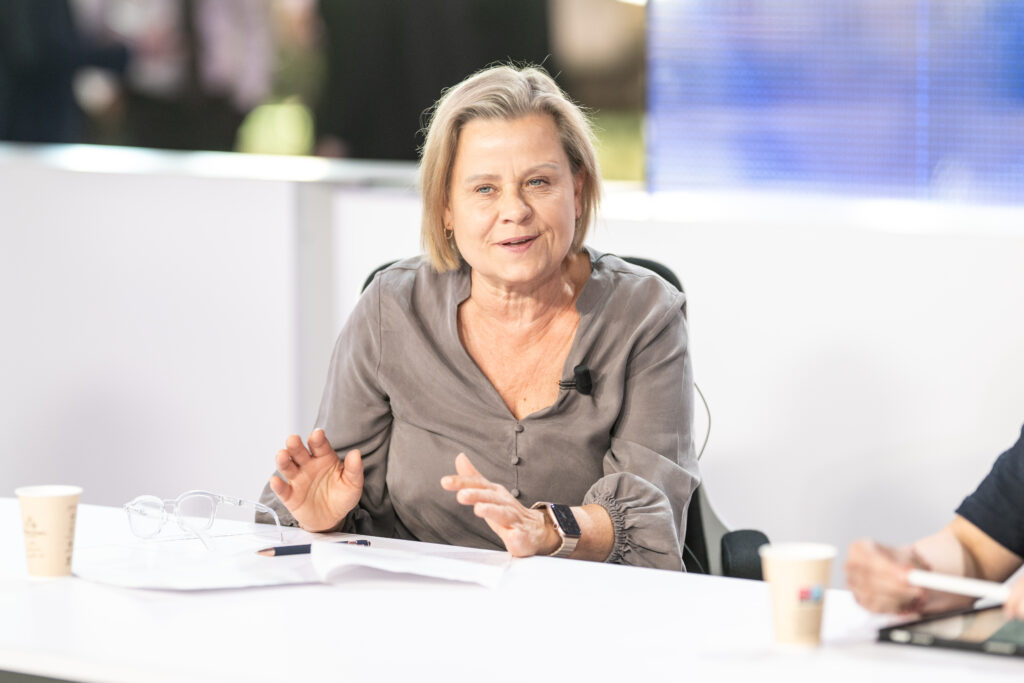
The unpopular GAEC
“I see no real fans of the so-called GAEC standards, which are more or less an obligation for the farmers,“ Mr Lins went on to mention the Good Agricultural and Environmental Conditions, tying farming subsidies to environmental responsibility. Farmers must comply with the standards to receive subsidies.
“The environmental sector is not happy (about the standards) because they are not ambitious enough, others want to get rid of them because they are too… too ambitious,“ the MEP put it succinctly. “I would propose, let’s do it via incentives—but then we have to pay the farmers, not only to give them the money which they are losing because of changing their management methods. We have to honour them, and it means they have to earn money with some kind of environmental measures. I think this should be the base and this should be our basic approach for the next Common Agricultural Policy.“
800 farms shut down daily
At this point, Thomas Waitz concurred. “I’m with Norbert on this. If we want farmers to protect the environment and to help us to stop climate change, they need to be rewarded for this by society and not just kept alive somehow. But they need to see that there’s something in it for them. So in this part, we’re joining forces.“
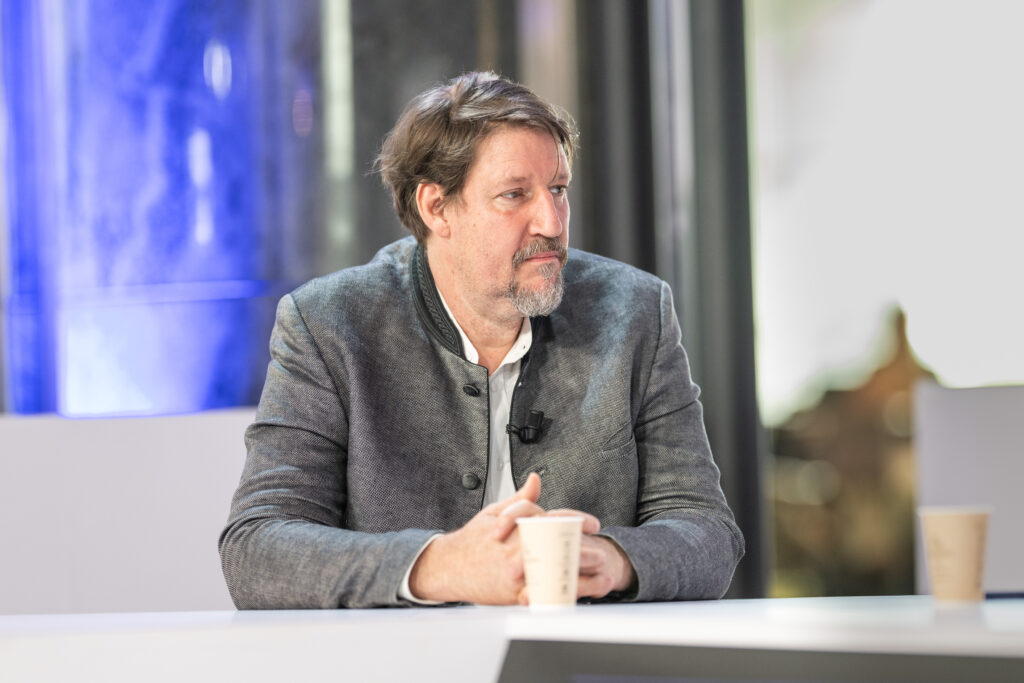
The Austrian MEP, himself a farmer, then proceeded to mention some statistics not boding well for the future of the Union’s agriculture sector. “We need farmers on the land, and we’re losing enormous amounts of farms every single day. It’s like 800 farms per day are closing down forever in the European Union. And so also due to our subsidy system: we’re actually supporting the big ones more than the small ones.“
Generational renewal
Another effect of the continent’s diverse set of approaches to agriculture translates into the varying state of generational renewal across the bloc. Mr Lins is well aware of the fact. „The generational renewal is a major challenge. It also depends on which member state you are from. Look, Thomas Waitz is from Austria, they are number one when it comes to the generational renewal. But when you look at a country like Portugal, for example, it’s really a disaster. So we have different situations in different member states,“ the MEP said.
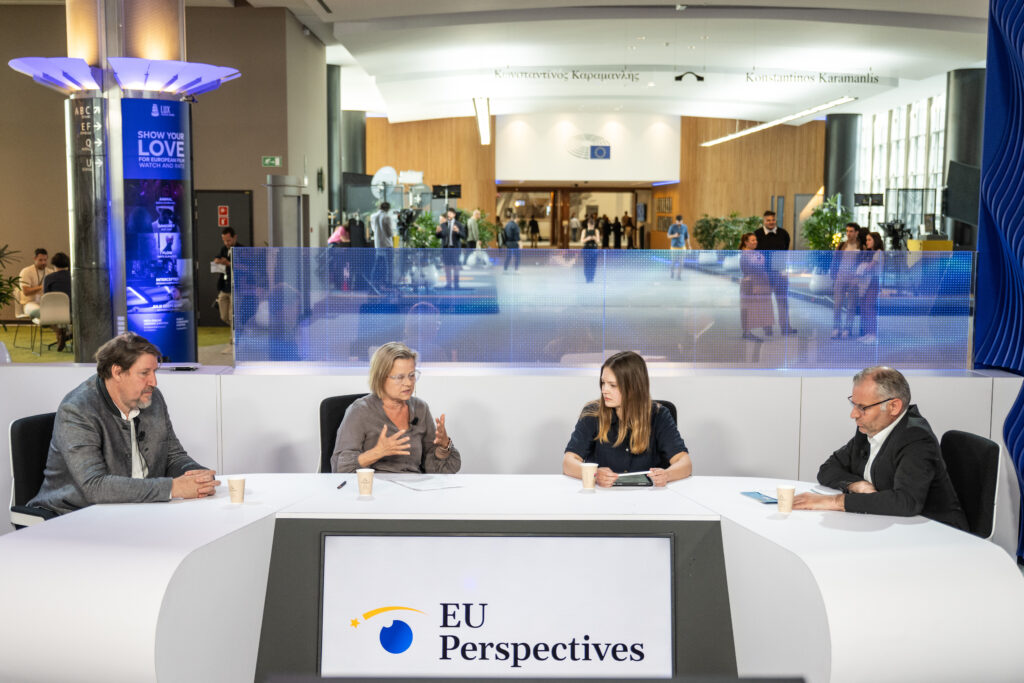
Despite the barrage of challenges, looking ahead, Mr Lins remains something of an optimist. To streamline the Common Agricultural Policy and strengthen farmers’ competitiveness, the European Commission unveiled a comprehensive package of reforms last week, aimed to address some of the key challenges. Projected to save farmers up to €1.58bn annually and national administrations €210m, the measures aim to boost efficiency by streamlining payments, relaxing certain requirements, and enhancing the agility of crisis management tools.
What sovereignty?
Broadly speaking, Mr Lins welcomes the measures. “I welcomed this vision very much because it was really a change of the Commission’s approach when compared to the last period. I think we are all in favour, around the table, to redistribute more money from the large farms to the smaller and medium-sized farms.“
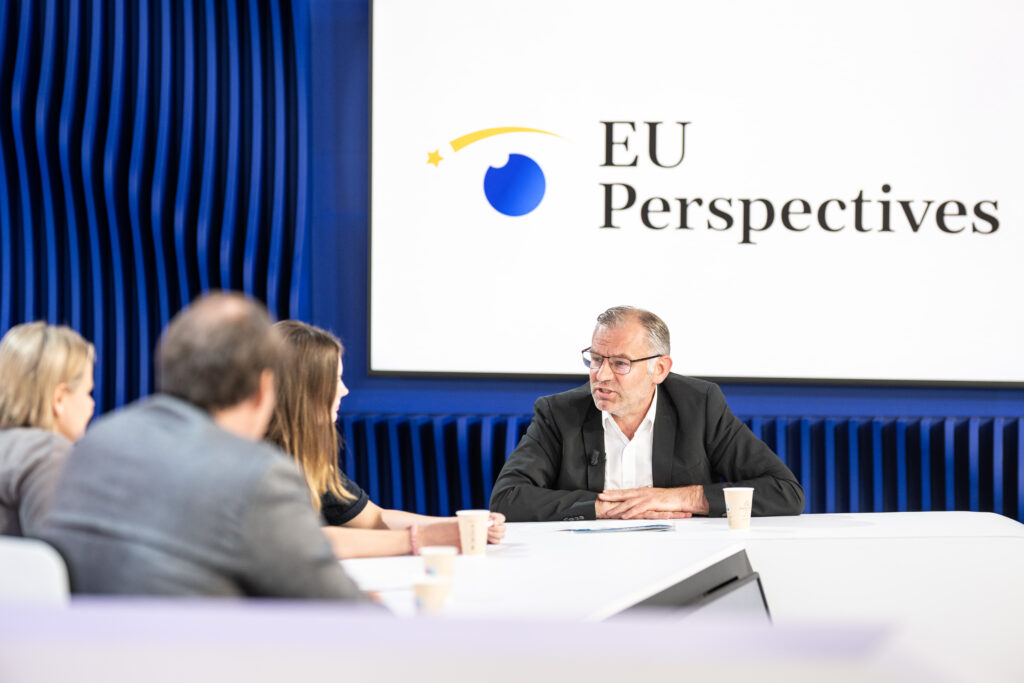
„So I think there are a lot of elements within this agricultural vision which I welcomed very much,“ the German Member said before acknowledging that working out the details would not come easy. “When it comes to self-sufficiency of fruits and vegetables in Germany, we have only self-sufficiency of 37 per cent on vegetables and only 13 per cent on fruits. I don’t think we have real food security or sovereignty there,“ he said. “First, we have to guarantee this self-sufficiency on the European level. But I think we should do more on the regional and national level as well.“
Level playing field
This, of course, opens the question of a “level playing field“. “But how can one achieve that? There will probably always be a difference in wages, for dozens of years to come. So what is the way forward to ensure that there is the level playing field in Europe? (It would have to mean having) the same minimum wages throughout the European Union. And that is not the case,“ he went on to contrast the situation in for example Germany with other relatively poor countries.
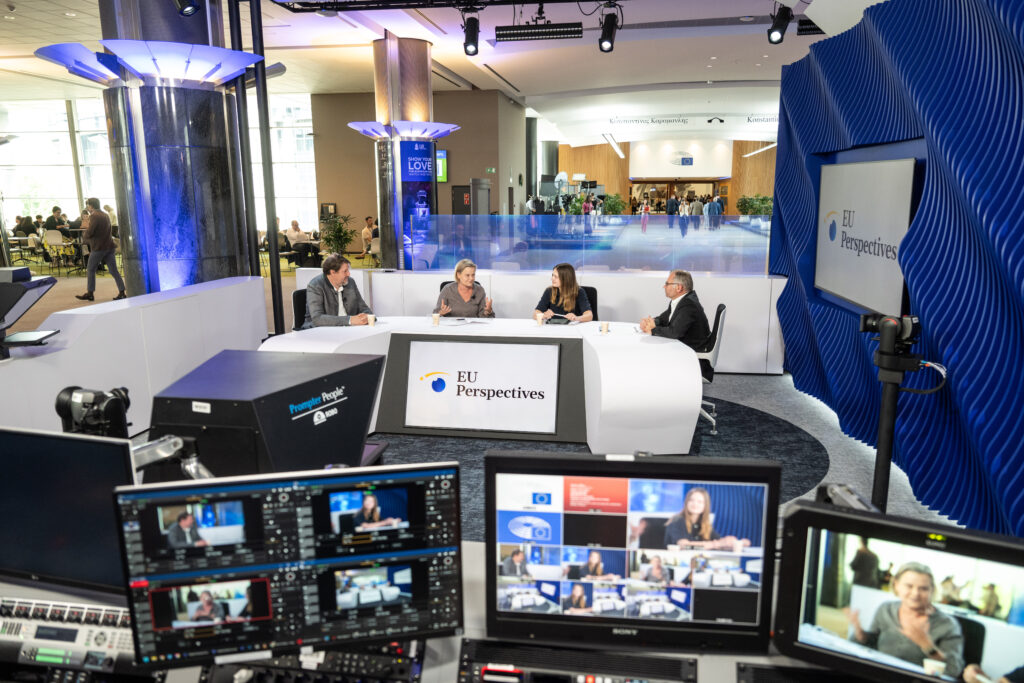
As the debate drew to a close, the German MEP presented his grand vision of the entire sector. “I would like to have an agricultural sector which is competitive. I would like to have an agricultural sector which gives perspectives for the young generation. I want to have an agriculture sector which guarantees food security and food sovereignty in a changing world, in a really challenging geopolitical situation. And I think this is our goal, this is our common goal as the European Union—and here in particular as the European Parliament and as the Agriculture Committee—to have a farming sector and a political level which cooperates more with farmers and listens to them more,“ he worded what he termed an effort to “establish a policy which is a better fit for the purpose“.
